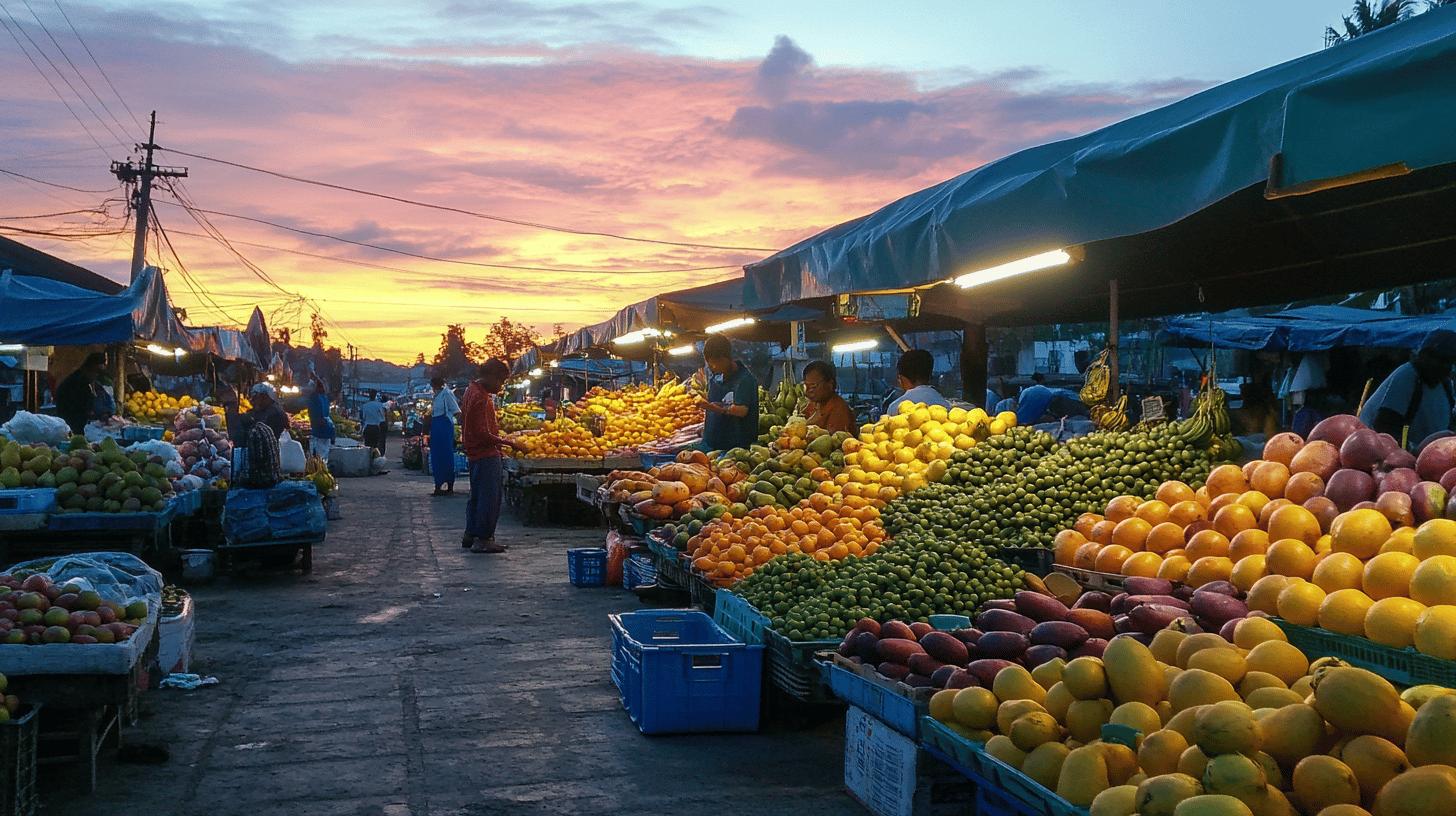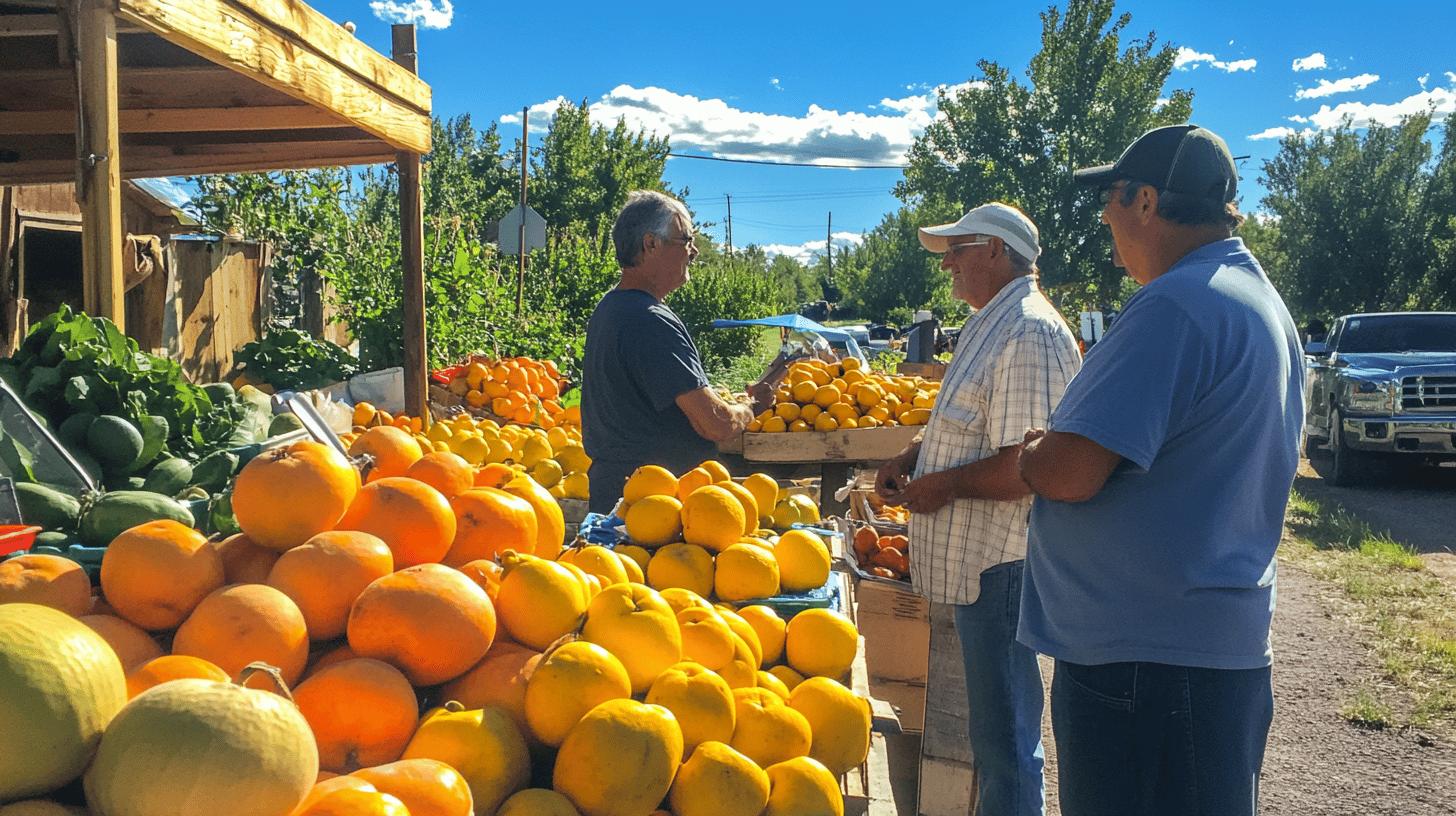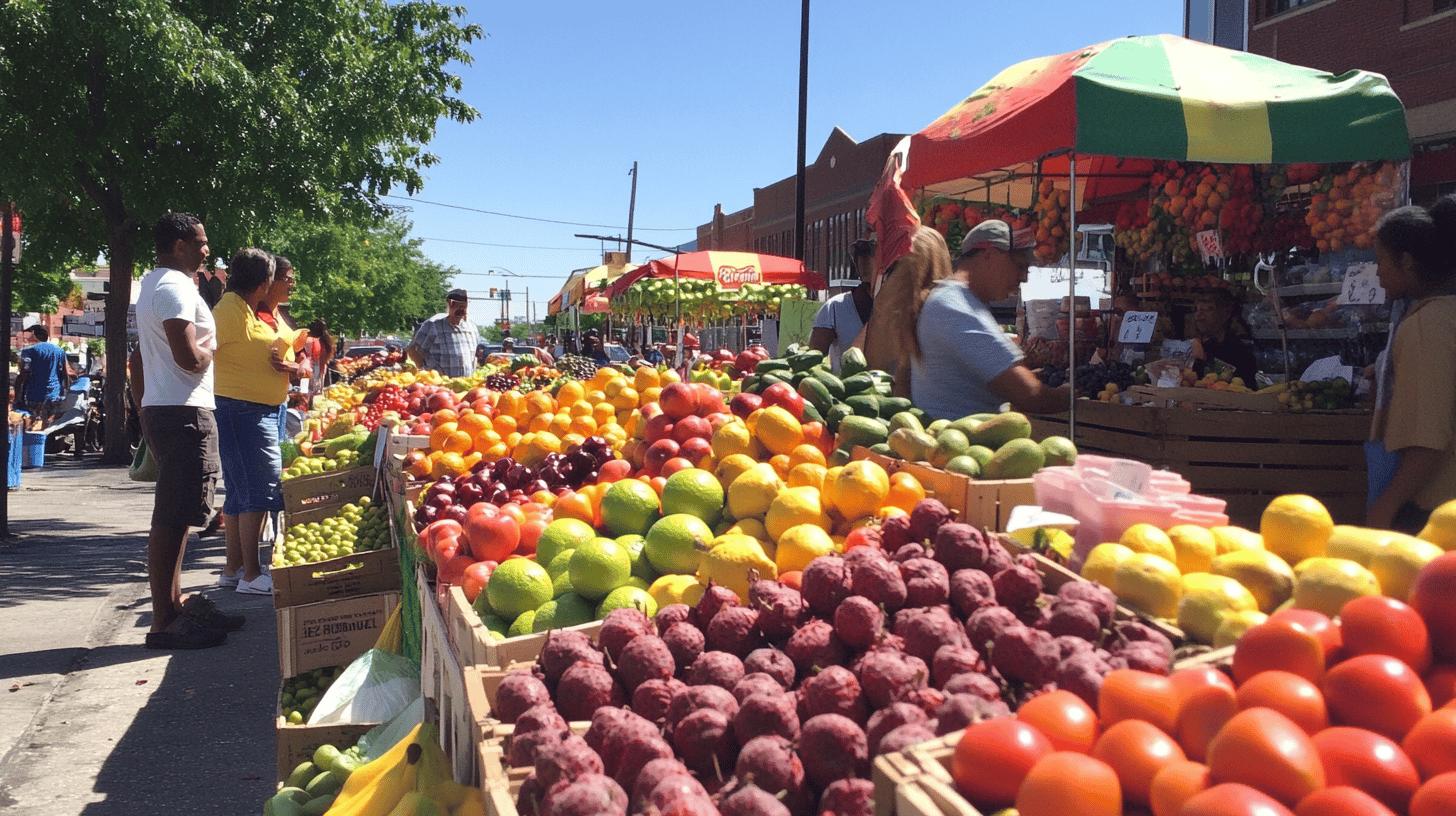Eco friendly fruit markets are redefining the way we think about fresh produce by prioritizing sustainability and reducing environmental impact. These markets are at the forefront of a movement that emphasizes locally grown fruits, minimizing packaging, and cutting down on transportation emissions. As eco-conscious shoppers increasingly demand transparency and sustainable options, these markets respond with practices that align with ethical farming and environmental stewardship. The use of certifications like USDA Organic and Fair Trade not only assures quality but also supports consumer trust. By connecting like-minded individuals, platforms like the Journey app foster a community that shares valuable insights and tips on sustainable produce, enabling each of us to make informed choices that benefit both our health and the planet.

Eco friendly fruit markets are increasingly embracing sustainability by focusing on locally grown fruits and reducing environmental impact. These markets prioritize sourcing produce close to home, which minimizes transportation emissions and lowers the carbon footprint. This practice also ensures fresher, seasonal fruits that resonate with eco-conscious shoppers seeking quality and sustainability. Current fresh produce market trends highlight a growing demand for transparency and certifications like USDA Organic and Fair Trade. Such credentials provide crucial assurance that fruits are grown using ethical and environmentally friendly methods. Many markets also reduce packaging waste by encouraging reusable bags and eliminating single-use plastics. The Journey app plays a central role in connecting eco-conscious shoppers by fostering a vibrant community centered on sharing experiences and sustainable produce tips. Through Journey’s robust tools, like customizable community feeds and group chats, individuals can participate in meaningful discussions, exchange resources, and discover local eco friendly fruit markets organically. This seamless interaction enriches understanding and supports a network of like-minded individuals committed to sustainable choices.

Sustainable fruit sourcing lies at the core of eco friendly fruit markets’ efforts to reduce environmental impact. These markets prioritize organic produce, which requires fewer chemical inputs and supports healthier soil and biodiversity. Sourcing fruits locally also minimizes transportation emissions, contributing to a lower carbon footprint and fresher products for consumers. Zero waste packaging has become a critical strategy in these markets. Many adopt biodegradable and compostable packaging materials, replacing plastics with alternatives like paper, plant-based wraps, or reusable containers. This shift not only reduces landfill waste but also encourages shoppers to embrace sustainable habits such as bringing their own bags or containers. Reducing plastic usage in fruit markets involves multiple approaches: eliminating single-use plastics, offering bulk produce options, and incentivizing customers to choose minimal or no packaging. These practices align with certifications like USDA Organic or Fair Trade, providing consumers with credible assurance of sustainable sourcing and responsible packaging. The Journey app supports this sustainable endeavor by enabling like-minded individuals to share their experiences and resources related to zero waste packaging and sustainable fruit sourcing. Through Journey’s vibrant community feeds and focused group chats, members participate in rich discussions, exchange practical tips, and highlight innovative packaging solutions. This seamless interaction fosters continuous learning and empowers users to make more informed, environmentally conscious choices when shopping for fresh produce.

Recognizing authentic eco friendly fruit markets requires a focused approach that highlights genuine commitment to sustainability and ethical practices. Key indicators help guide individuals toward markets that align with their values and promote long-term environmental stewardship. Look for these five critical criteria:

Directories serve as a crucial hub for discovering eco friendly fruit markets that prioritize farmer's market sustainability and locally grown fruits. These listings highlight markets, community-supported agriculture (CSA) programs, and co-ops that emphasize seasonal fruit availability and sustainable practices. Notably, over 50% of U.S. farmer's markets accept SNAP and WIC benefits, improving accessibility and affordability for diverse communities. Below is a curated directory showcasing four exemplary eco friendly fruit markets with their key sustainable practices:
The Journey app plays a pivotal role in enhancing discoverability and community resource sharing for eco-conscious shoppers. By enabling users to create and participate in vibrant, well-maintained communities, Journey fosters rich interactions centered on sustainability. Members can share reviews, exchange ideas, and organize events related to local markets, organically expanding their network of like-minded individuals. Journey’s robust tools, including customizable community feeds, group chats, and searchable directories, empower users to access granular, trustworthy information about eco friendly fruit markets near them. This seamless blend of technology and community engagement supports continuous learning and meaningful participation, making it easier for individuals to align their shopping habits with sustainable practices.

Eco friendly fruit markets play a crucial role in strengthening local economies by supporting small-scale farmers and producers. These markets foster transparency in sourcing, allowing consumers to interact directly with growers, which builds trust and promotes ethical farming practices. By prioritizing locally grown fruits, they significantly reduce environmental footprints through decreased transportation emissions and packaging waste. Many eco friendly markets actively create educational opportunities, offering workshops and programs that highlight sustainable agriculture and waste reduction strategies. These initiatives enrich community understanding and encourage long-term commitment to eco-conscious choices. Key community benefits include:

Eco friendly fruit markets are evolving rapidly, integrating fresh produce market trends that emphasize sustainability and innovation. A crucial development is the use of renewable energy in agriculture, such as solar-powered irrigation systems and wind energy for farm operations. These technologies reduce reliance on fossil fuels, shrinking the carbon footprint of fruit production. Sustainable agriculture initiatives are gaining momentum, with more farms adopting green certifications that enforce stringent environmental standards. These initiatives encourage practices like crop rotation, cover cropping, and reduced chemical usage, enhancing soil health and biodiversity. Green technologies in agriculture are also transforming waste reduction in farming. Innovations include precision farming tools that optimize resource use, and composting systems that convert organic waste into valuable soil amendments. These advancements not only minimize environmental impact but also improve overall farm efficiency. Consumer demand for locally sourced, seasonal produce continues to grow, driving markets to adopt innovative farming methods that address climate change. This blend of technology and sustainability sets the stage for a future where eco friendly fruit markets thrive as hubs of environmental stewardship and community engagement.
Exploring the eco-friendly fruit market landscape reveals a dynamic shift toward sustainability. Through locally grown fruits, zero waste packaging, and ethical farming practices, these markets exemplify innovative progression. Communities benefit from reduced environmental impacts and stronger local economies. The Journey app fosters connections, allowing consumers to share insights and support eco-conscious shopping.
Embracing these markets leads to a more sustainable future, where the focus is community-driven and environmentally friendly. Step into this eco-friendly journey and contribute to a healthier planet through informed choices.
The most eco-friendly fruit is the one produced locally with minimal pesticides and packaging. Fruits like apples and pears often have lower environmental footprints when sourced sustainably.
The fruit selling business can be profitable when focusing on eco-conscious consumers and sustainable methods. Implementing practices like minimal packaging and local sourcing enhances appeal and potential profits.
Aldi sources its fruits and vegetables both locally and globally, depending on seasonality and availability, to maintain fresh stock while prioritizing quality and affordability.
The best grocery chain for fruit offers consistent quality, sustainably sourced options, and seasonal variety. This may vary by region, so local reviews and community feedback are key factors.
To find eco friendly fruit markets in the USA, use directories or apps like Journey that offer community-shared reviews and recommendations on sustainable local markets.
Frog Hollow Farm stands out for its commitment to organic farming methods and minimal environmental impact, prioritizing soil health and biodiversity in its farming practices.
Yellow Green Farmers Market hosts diverse events, including local vendor showcases and sustainability workshops, fostering community engagement and promoting eco-friendly practices.
Booth costs at Yellow Green Farmers Market vary based on size and location. Contacting the market directly provides the most current fee structure and availability.
Technology impacts eco friendly fruit markets by promoting transparency, enhancing consumer-producer connections, and supporting sustainable practices through innovative solutions and applications like Journey.
Future trends in eco friendly fruit markets include the adoption of renewable energy, novel waste reduction technologies, and increasing demand for locally sourced, seasonal produce to combat climate impacts.